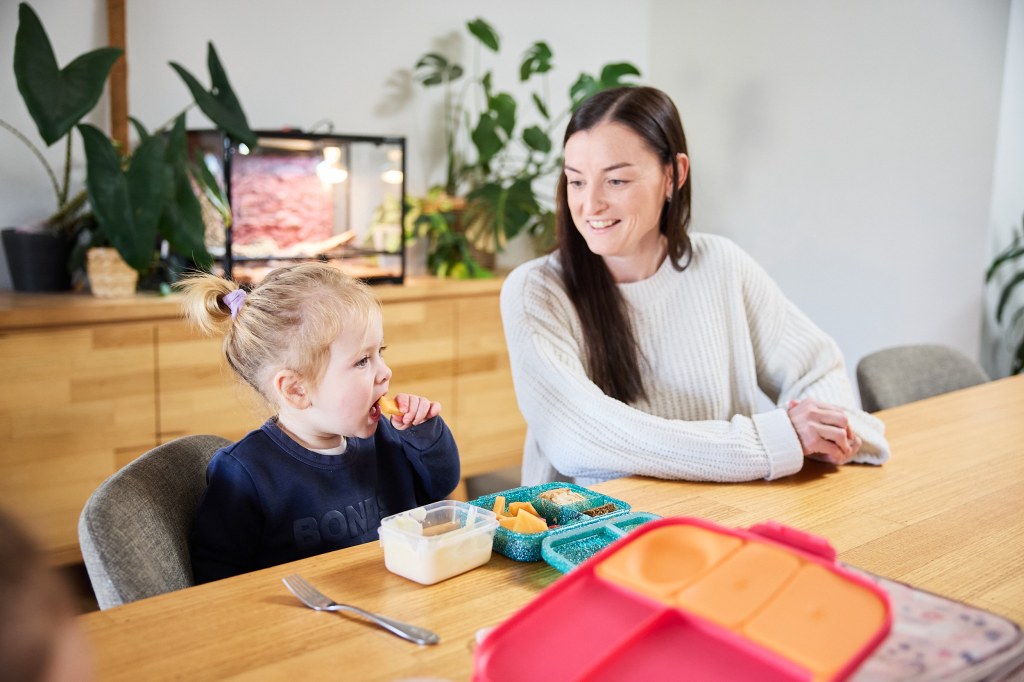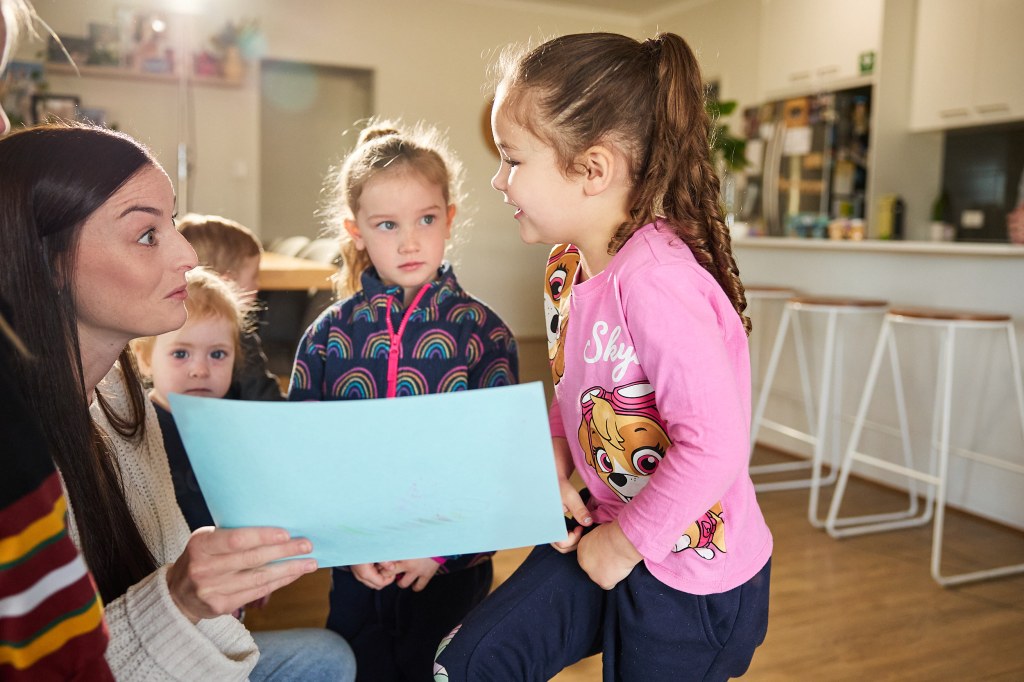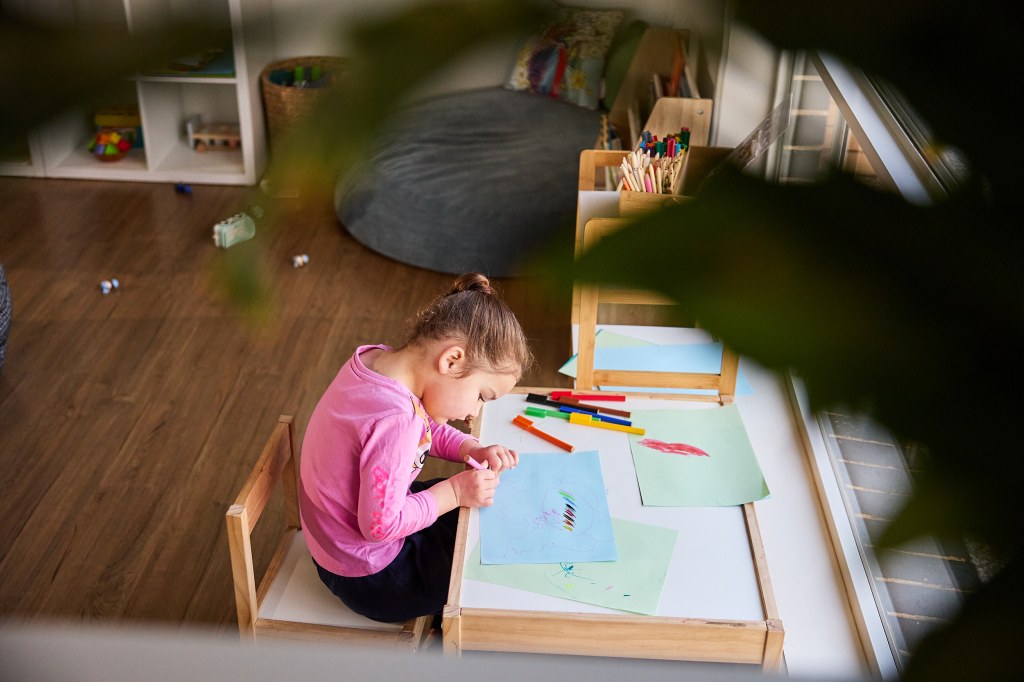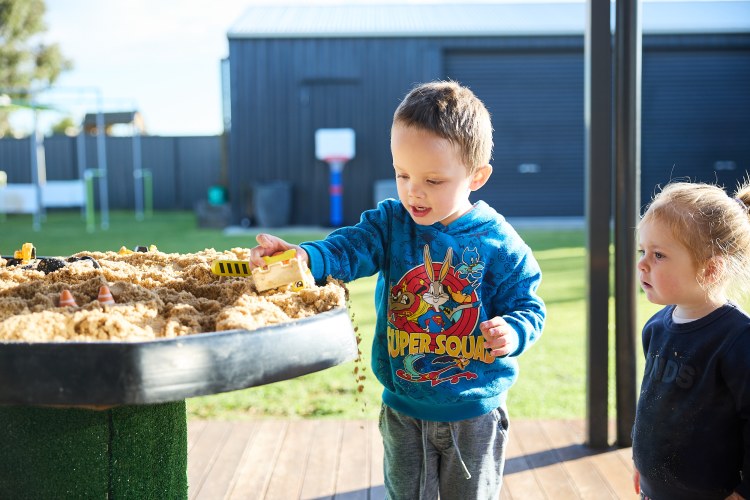Finding the right childcare centre spot can feel difficult. But there’s a growing alternative you might not have considered – family day care.
If you’ve ever tried to find a childcare spot, you’ll know it’s sometimes not easy – long waitlists, high demand, and too few options that actually fit your family’s needs.
One option you might not have considered – but that’s quietly growing across the state – is family day care: small group care run by qualified educators from their own homes, managed through the Department for Education.
For Aimee, a diploma-qualified educator in Adelaide’s northern suburbs, it’s been life-changing – for her family, for the kids she cares for, and for the parents who were desperate for a spot.

From a friend’s idea to her own business
When Aimee opened her family day care earlier this year, she already had more than a decade of experience in early childhood education. But the biggest push didn’t come from a campaign or a career adviser – it came from her best friend over a casual chat.
“She just said, ‘Why don’t you do family day care? Then you’d be home, you could be around for the kids more,’” Aimee says. “It was the kickstart I needed.”
At the time, she was working in a busy centre, juggling long days, a 45-minute commute, and a partner who works shifts.
“Some nights I wasn’t getting home until after 6pm, and if my partner was on a late shift, it was just me getting the kids sorted. It was exhausting.”
Her own kids had been in family day care before, and she’d seen how much it suited them compared to a big centre.
“When my oldest daughter was about two, we tried her in a traditional daycare centre, but that just didn’t really suit her. There were just too many children, and not enough consistency around the educators. She couldn’t understand why, one morning, her educator was there to meet her at drop-off, and the next she wasn’t because she was starting later.”

Safety you can see from day one
Safety is built into every part of family day care – from the checks each educator must pass to the way their home is set up and monitored.
Every educator in SA must have a qualification in early childhood education and care, pass a Working With Children Check, and ensure anyone in their household who may be around children has one too. The Department for Education carries out home inspections, risk assessments, and regular quality checks.
“My partner and my mother-in-law both have Working With Children Checks because they’re sometimes home when I’m open,” Aimee says. “Parents meet me before enrolling – there are no casual staff walking in and out. I’m here with the children the whole time.”
Some families are cautious about the “one educator” model, but Aimee sees it as a strength.
“Once I explained how it works – that we’re together the whole time, like a family – they felt reassured. I think it feels safer for parents because they know exactly who to talk to and who’s with their child all day.”

Small groups, big impact
Instead of a large centre with dozens of children and a roster of staff, family day care is one educator in their own home, caring for up to four preschool-aged children, plus up to three school-aged kids before or after school.
“You can build such strong relationships,” Aimee says. “You know every child, their interests, their needs – and you can tailor the program to them much more easily.”
Her days include sensory play in the mud kitchen, sandpit and water area, counting games, and walks in the local community.
“We teach road safety, stranger danger – real-life skills you can’t get from a worksheet.”
The benefits for children and families
For some families, the change can be transformative.
“One little girl came from a big centre where she was constantly sick,” Aimee says. “Her mum was almost in tears when we met – she was so tired of her daughter being sick, then the whole family getting it. Since moving here, her daughter’s only had one week off – and it wasn’t even from something she got at my service.”
Family day care offers everything you’d expect from a quality childcare centre – from play-based learning to structured activities – plus more personalised attention, stronger relationships, and a closer connection between educator, child, and family.
Aimee says one parent describes it “like dropping their child off at a friend’s house for the day – not because of any lack of professionalism, but in that sense of safety and comfort it brings them”.
Small groups make it easier to get out and about too. “We can actually go for a walk and practise road safety,” Aimee says. “That’s not something you can do easily with 25 kids to wrangle.”

Extra perks you won’t always find in a centre
Other advantages include:
- A true home-like learning environment – familiar surroundings that help children feel comfortable and secure.
- Mixed-age group learning – younger kids benefit from older role models, and older children develop empathy and leadership skills.
- Flexibility for families – some educators offer before and after school care, school holiday care, evenings, or even overnight care.
- Consistent care – one familiar educator builds trust and truly understands each child’s needs.
What if my educator is away?
Family day care educators sometimes need breaks too – whether it’s a planned holiday, a professional development day, or an unexpected illness.
In those cases, a relief educator – usually a registered family day care educator who already knows you and your child – can step in until your regular educator is back. You’ll be told as far in advance as possible, so there’s time to prep your child – and no sudden surprise (or tears) at drop-off.
Could you run family day care from home?
For Aimee, running her own family day care has brought back the joy of the job.
“Nobody does this for the pay – it’s for the passion. Working like this has really brought that back for me,” she says.
She also gets something she never had in centre-based care: flexibility. “I can choose my hours and my rates, and I’m here when my kids get home from school. I get extra time with them in the mornings and afternoons.”
It’s not without its pressures – she’s responsible for everything from safety to learning programs – but the Department’s business centre handles enrolments, Child Care Subsidy payments, and much of the paperwork.
“There’s always someone you can call if you have a question. You’re not on your own.”

How to get started as an educator
You’ll need:
- A minimum Certificate III in Early Childhood Education and Care (Aimee has a Diploma)
- A Working With Children Check, National Police Check, first aid, and child protection training
- A home that meets safety requirements (the Department will guide you through any changes).
From application to opening day, Aimee says she felt supported. “Every step, the recruitment team came out in person. If I needed help, we’d do it together.”
How to register your interest as a parent
To explore family day care for your child, visit the Care for Kids website, complete the family day care enquiry form here, or call direct on (08) 8343 6533. The team can match you with services, arrange visits, and guide you through registration.
Find out more about starting a career in family day care here.

















